LCN Keynote Presentations
Paving the Way Towards 5G Wireless Communication Networks
Dr. Mohamed-Slim Alouini
Computer, Electrical, and Mathematical Science and Engineering (CEMSE) DivisionKing Abdullah University of Science and Technology (KAUST)
Thuwal, Makkah Province, Saudi Arabia
ABSTRACT
5G wireless communication networks are expected to fulfill the demand for higher data rates, lower latency, and/or massive connectivity of a growing number of users/devices exploiting a variety of wireless applications. This envisioned rapid increase in the use of wireless services lead the wireless research community to start looking at new technologies to address problems related to the radio-frequency (RF) spectrum exhaustion. This includes the development of (i) new techniques and concepts such as massive multiple input multiple output (MIMO) systems and heterogeneous networks to improve the spectral efficiency at the link and network layers, respectively, and (ii) novel schemes to better utilize the unregulated bandwidth in particular in the upper millimeter wave, THz, and optical portion of the spectrum. This talk will first go briefly over the vision and goals of 5G wireless communication networks. Then it presents some of these emerging enabling technologies that need to be developed to pave the way towards the successful roll-out and operation of these future wireless networks.
ABOUT THE SPEAKER
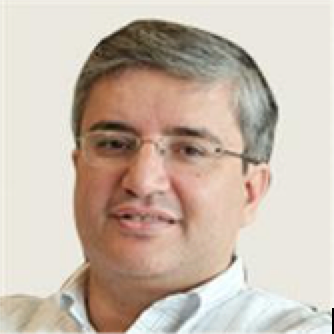 |
Mohamed-Slim Alouini (S'94, M'98, SM'03, F’09) was born in Tunis, Tunisia. He received the Ph.D. degree in Electrical Engineering from the California Institute of Technology (Caltech), Pasadena, CA, USA, in 1998. He served as a faculty member in the University of Minnesota, Minneapolis, MN, USA, then in the Texas A&M University at Qatar, Education City, Doha, Qatar before joining King Abdullah University of Science and Technology (KAUST), Thuwal, Makkah Province, Saudi Arabia as a Professor of Electrical Engineering in 2009. Prof. Alouini is a Fellow of the Institute of Electrical and Electronics Engineers (IEEE), a member of the Thomson ISI Web of Knowledge list of Highly Cited Researchers and of the Elsevier/Shanghai Ranking list of Most Cited Researchers, and an IEEE Distinguished Lecturer of the IEEE Communications Society. He is a recipient of the Recognition Award of the IEEE ComSoc Wireless Technical Committee in 2016 and a co-recipient of best paper awards in ten IEEE conferences (including ICC, GLOBECOM, VTC, PIMRC, and DySPAN). His current research interests include the modeling, design, and performance analysis of wireless communication systems. |
Security Implications of Edge Intelligence in Power Grid as Cyber-Physical System
Dr. David Yau
Professor of Information Systems Technology and DesignSingapore University of Technology and Design
Qiushi Chaired Professor, Department of Control
Zhejiang University, China
ABSTRACT
What happens when we deploy ICT increasingly in power systems and exploit their characteristics jointly in a cyber-physical manner? In this talk, I will overview some of the security implications, in the form of both challenge and opportunity, as ICT intelligence, particularly at the edge, meets the physical laws of power flows that pervade the system.
ABOUT THE SPEAKER
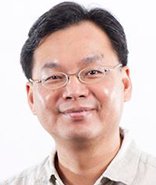 |
David Yau obtained the Ph.D. from the University of Texas at Austin in computer science. He is now Professor in the Information Systems Technology and Design pillar of the Singapore University of Technology and Design. Since 2010, he has been Distinguished Scientist at the Advanced Digital Sciences Center, Singapore, where he is Cybersecurity Program Director. He is also Qiushi Chaired Professor in the Department of Control, Zhejiang University, China. He was Assistant Professor then Associate Professor of Computer Science at Purdue University (West Lafayette). In 2004, he was on sabbatical leave as Associate Professor, Computer Science and Engineering, CUHK. David is interested in networking and networked cyber-physical systems. A current research focus is the security and privacy of cyber-physical systems such as smart grids. He received a U.S. NSF CAREER award and Best Paper awards in 2017 IEEE/ACM Int’l Conf. Information Processing in Sensor Networks (IPSN) and 2010 IEEE Int’l Conf. Multi-sensor Fusion and Integration (MFI). He was also Best Paper finalists in several IEEE/ACM conferences including IEEE PerCom and ACM BuildSys. He serves on the editorial boards of Big Data Research (Elsevier) and IEEE Trans. Network Science and Engineering, and is Associate Editor of IEEE Trans. Smart Grid, Special Section on Smart Grid Cyber-Physical Security (2017). He was also Associate Editor of IEEE/ACM Trans. Networking. David has served in technical and organizational roles of numerous IEEE conferences in networking, including TPC co-Chair of IEEE ICNP and IEEE IWQoS. He serves in the Management Committee of the Singapore Cybersecurity Consortium and chairs the SCC’s SIG in IoT and CPS security. |
LCN Workshop Keynote Presentations
WECNet Workshop
Challenges of IoT - the expected and the unforeseen
Dr. Damla Turgut
Department of Computer ScienceUniversity of Central Florida, USA
ABSTRACT
The internet of things refers to collection of internet connected computational devices embedded into the objects of the physical world. It is expected that some of these devices perform sensing and actuation functionality. Visions of the internet of things often refer to a world were many (or all) the physical objects we interact with are part of the internet of things.
In recent years the IoT paradigm had experienced significant hype, but also faced some stinging criticisms outlining challenges to its implementation. Some of these challenges were known and expected. Other ones are the type that would have been difficult to foresee ten years ago. Yet another ones are the kind which we could have definitely foresee, but we did not. For instance, we were relatively good at predicting the technical challenges associated with the IoT.
The security and privacy issues were known and expected, yet certain attacks against IoT systems took us by surprise. At this moment it is clear that the business cases and economic models associated with different IoT applications were not clearly thought through. And essentially nobody anticipated "day two" issues - how are we going to operate, maintain and update an IoT environment once it is deployed?
In this talk we discuss some challenges faced by the IoT world in 2017, identify research objectives and try to draw some lessons from them.
ABOUT THE SPEAKER
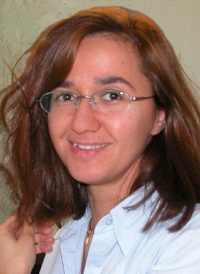 |
Dr. Damla Turgut is an Associate Professor at the Department of Computer Science at University of Central Florida. She received her BS, MS, and PhD degrees from the Computer Science and Engineering Department of University of Texas at Arlington. Her research interests include wireless ad hoc, sensor, underwater and vehicular networks, cloud computing as well as considerations of privacy in the Internet of Things. She is also interested in applying big data techniques for improving STEM education for women and minorities. Her recent honors and awards include University Excellence Award in Professional Service in April 2017 and being featured in the UCF Women Making History series in March 2015. She was co-recipient of the Best Paper Award at the IEEE ICC 2013. Dr. Turgut serves as a member of the editorial board and of the technical program committee of ACM and IEEE journals and International conferences. She is a member of IEEE, ACM, and the Upsilon Pi Epsilon honorary society. |
ON-MOVE Workshop
Using Vehicular Data to Understand Urban Mobility & Events
Prof. Archan Misra
Associate Dean of ResearchSchool of Information Systems
Singapore Management University
ABSTRACT
Cities are increasingly providing public access to a variety of transportation-related “big data”, such as the real-time location of taxis, crowdedness level of buses and arrival times of trains. In this talk, Archan will introduce the concept of socio-physical analytics, which fuses such transportation-related data across multiple modalities (such as buses, taxis and parking garages) with social media sensing to identify and characterize urban micro-events. Archan will describe two distinct families of event detection, both of which aid the goal of improved understanding and optimizing of personal urban mobility. One combines such transportation data with sensor data from personal mobile devices (of a fraction of commuters) to obtain novel insights into commuting experiences (e.g., the waiting time at taxi stands). The other combines multi-modal transportation data (e.g., occupancy levels of buses, dropoff and pickup rates of taxis) with social media data (e.g., Twitter & Foursquare) to both identify and localize urban micro-events.
ABOUT THE SPEAKER
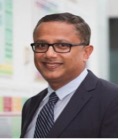 |
Archan Misra is a Professor, and the Associate Dean of Research, in the School of Information Systems at Singapore Management University (SMU). His current research interests lie in systems-oriented research in the areas of wearable & IoT sensing, real-time socio-physical analytics and urban mobile crowdsourcing technologies. He is also a Director of the LiveLabs research center, as well as the Director of the Center for Applied Smart-Nation Analytics (CASA). Over a 20-year research career spanning both academics and industry (at IBM Research and Bellcore), Archan has worked extensively on problems spanning wireless networking, mobile & pervasive computing and urban sensing. Archan holds a Ph.D. from the University of Maryland at College Park, and chaired the IEEE Computer Society's Technical Committee on Computer Communications (TCCC) from 2005-2007. |
SenseApp Workshop
Real-world Large-scale IoT Systems for Ageing-in-Place: Experiences and Lessons Learnt
Dr. Hwee-Pink TAN
Associate Professor of Information Systems (Practice)Academic Director, SMU-TCS iCity Lab
Singapore Management University, Singapore
ABSTRACT
The paradigm of ageing-in-place — where the elderly live and age in their own homes, independently and safely, with care provided by the community — is compelling, especially in societies that face both shortages in institutionalized eldercare resources, and rapidly ageing populations. When the number of elderly who live alone rises rapidly, support and care from their communities become increasingly crucial. Internet of Things (IoT) technologies, particularly in-home monitoring solutions, are becoming mature. They can become the fundamental enabler for smart community eldercare.
In this presentation, I would like to share our experiences and learnings gathered from largescale deployments of IoT systems in homes of elderly living alone, focusing on the operational and usability aspects of such systems.
ABOUT THE SPEAKER
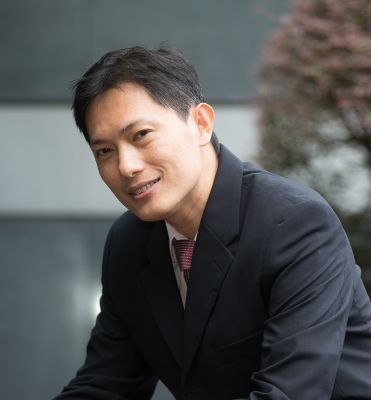 |
Dr. Hwee-Pink TAN currently leads a team of 10 technology and social science researchers to bring together Internet of Things (IoT) technologies, and social-behavioral research to enable and sustain ageing-in-place, leading, in a broader sense, to intelligent and inclusive societies, in close partnership with A*STAR, TCS, various government agencies, regional health systems as well as Voluntary Welfare Organizations. At SMU, he teaches a new Information Systems Elective on IoT: Technology and Applications, targeted at senior undergraduate students, as well as students pursuing the Professional Masters of IT and Business (MITB). He is also an adjunct faculty with the Geriatric Education and Research Institute (GERI) in Singapore. Prior to joining SMU in March 2015, he spent 7 years at the Institute for Infocomm Research (I2R), A*STAR, where he was a Senior Scientist and concurrently the SERC Programme Manager for the A*STAR Sense and Sense-abilities Program. In this programme, he led a team of 30 full-time research scientists and engineers to design, pilot and evaluate architectures to support large scale and heterogeneous sensor systems to enable Smart City applications. In recognition of his contributions, he was awarded the I2R Role Model Award in 2012 and 2013, and the A*STAR Most Inspiring Mentor award, TALENT and Borderless Award in 2014. He graduated from the Technion, Israel Institute of Technology, Israel in August 2004 with a Ph.D. In December 2004, he was awarded the A*STAR International Fellowship to conduct postdoctoral research at Eindhoven University of Technology (Dec 2004 to Jun 2006) and Trinity College Dublin (Jul 2006 to Mar 2008) on the design and evaluation of wireless networks. He is a Senior Member of the IEEE, has published more than 100 papers, and has served on executive roles for various conferences on IoT. |
